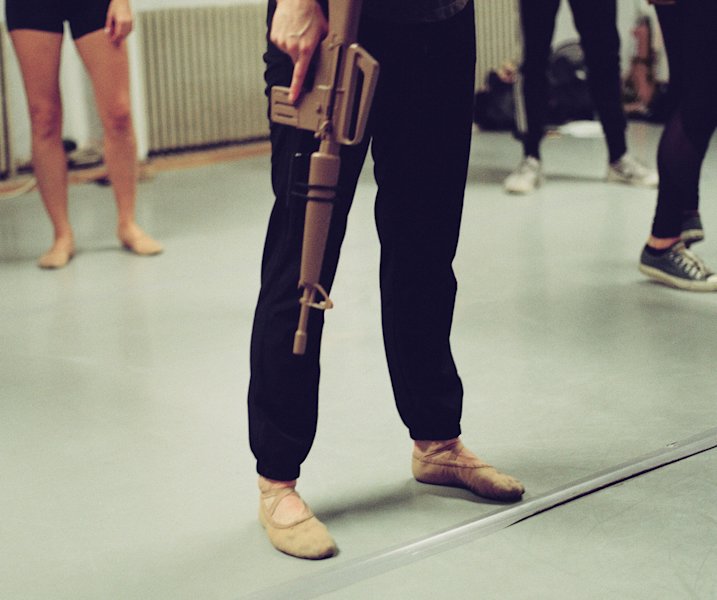Exit 12
He shoulders the M16, his back hand on the pistol grip, his cheek pressed firmly against the stock, and peers through the sight. A dozen individuals standing behind him do the same, making themselves as small a target as possible. He stresses that they are not to point the rifle at anyone they do not intend to shoot.
Slowly, he changes his posture, and the group follows. Bodies relax and become less threatening. With the confidence of an experienced veteran, the leader guides the group through their steps and transitions, until it’s time to begin again. Back to one. The group’s leader is Roman Baca, and the rifle he’s carrying is a prop.
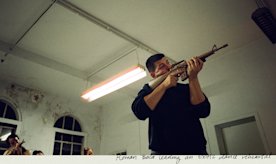
The Greenwich Village dance studio he’s rehearsing in is a world away from the patrols he led in Fallujah, Iraq, as an anti-tank missile assaultman, machine gunner, and fire-team leader.
Roman is the founder of Exit12, a contemporary dance company and one of 2.5 million veteran-owned businesses in the United States.¹ Veterans like Roman have a propensity for entrepreneurship; a 2011 SBA Office of Advocacy study reported that veterans are about 45% more likely to become entrepreneurs than people with no active-duty military experience.²
Veterans are about 45% more likely to become entrepreneurs than people with no active-duty military experience.
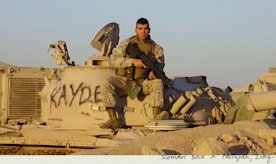
A classically trained ballet dancer, Roman began experiencing depression and anxiety upon his return home from war.
“I would be in the car on the highway, and cars would cut me off. A normal person would be able to deal with it. I remember wanting to hit the gas and ram the car in front of me.”
His wife, Lisa, didn’t recognize the anger in the man that she knew. Roman was expecting her to leave him. Instead, she offered him a challenge. “What would you do if you could do anything in the world?” she asked. “I’d start a dance company,” said Roman.
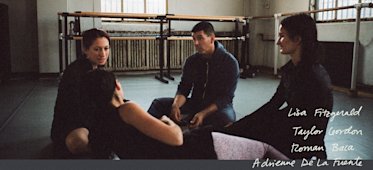
From the beginning, the artistic mission of their dance company, Exit12, has been to use choreography as a means of communicating the diverse and nuanced experiences of military veterans. Exit12 holds workshops with active duty and retired veterans, with the goal of coaxing out creative expression through movement of the body. For some, the more abstract form of dance allows them to communicate when words have failed them.
“In boot camp, you’re taught how to slash people, stab people. These things are repeated over and over again. Your body reacts without thinking.”
“Dance injects the consideration and humanity back into the body. It’s a sort of deprogramming.”
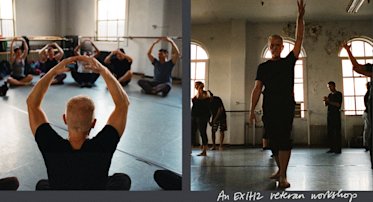
Over the years, Roman has had to support Exit12 by holding down other jobs. He served as the artistic director and general manager of Ballet Theatre Company in Hartford, CT, and would routinely make the four-hour round-trip commute to New York City to keep Exit12 going.
And the challenges continue. As a company with one foot in the dance world and one foot in the veteran sector, it can be difficult to communicate what they do with prospective customers. “The hardest part about selling tickets is sufficiently articulating what we do in a way that resonates with an audience,” said Roman.
Roman has persevered not only because he wants to tell the stories of those impacted by war, but also because he sees the power of artistic expression to help heal those who have experienced it. And like many other veteran business owners, he feels a responsibility to give back to that community.
The magic of Exit12 emerges in the performances. Angela Scimonelli Myers, a former ballet dancer, experienced the emotional trauma of having her two sons deployed to Afghanistan, where they were stationed within five miles of each other. She nearly lost them both on Christmas Day, when a shell landed next to them but failed to explode. She turned her experience into a dance piece for Exit12 called Sometimes, Silence.
“You have no idea what it is to wake up in the morning and wonder if your children are dead. Every moment, I thought about them.”
The dancers in the company often have strong, personal connections to the military. Taylor Gordon, an Exit12 dancer, lost her brother when he committed suicide after two deployments to Afghanistan.
“When we perform, it forces us to truly be in the moment on stage. Because we are sharing stories that we are very deeply connected to. It’s like it’s happening to us.”
Sometimes, finding the right creative outlet can prove to be a lifesaving discovery. Everett Cox, a Vietnam veteran, struggled with drugs and depression for decades after returning from war. He tried many activities and forms of creative expression before being introduced to Roman through a veteran movement workshop. While he continues to suffer from chronic suicidal ideation, artistic groups like Exit12 and others have enabled him to recontextualize his pain and, as Cox puts it, set his negative energy free.
“If you have a talent, share it with a vet. Don’t wait until November 11. Let that vet know you’re willing to share that gift, and it will be met with ears that are willing to listen.”
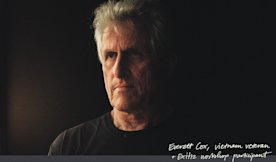
Now, both Roman and Exit12 are seeing the fruits of their labor. Roman has recently been awarded a Fulbright grant and is pursuing an MFA in choreography at the Trinity Laban Conservatoire in London. And in the years to come, Exit12 dreams of performing on the biggest stages across the country and putting their kind of mission-driven performance in front of as many people as possible.
“I think this journey has been full of risk, full of doing something that a sane person probably would never do.”
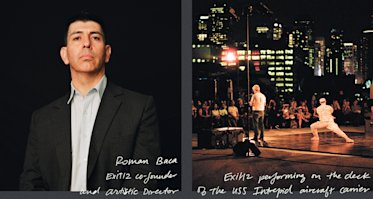
If you’re a veteran in need of help
We’re proud to partner with the Veterans Crisis Line. For veterans, crises can be heightened by their experiences during military service. If you’re a veteran or service member, these resources can help.
Call the Veterans Crisis Line
1-800-273-8255
1 https://www.sba.gov/sites/default/files/advocacy/435-veteran-owned-businesses-report.pdf
2 https://www.sba.gov/advocacy/veterans-often-choose-entrepreneurship
